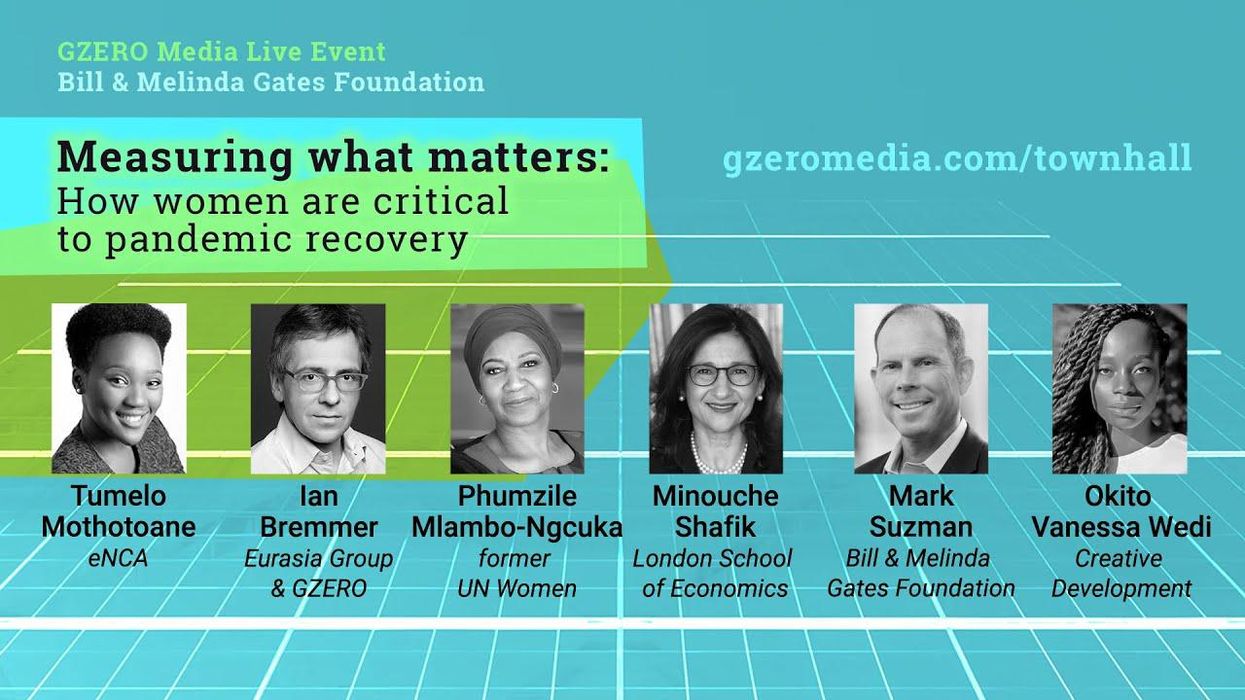Events
The pandemic’s impact on women and the global economy
What pandemic result will have the largest and longest-lasting impact on women? Is the world really building back better for half the global population? How can we ensure that the post-pandemic recovery is fair to women? And how does this all play into a wider G-Zero world? A group of global experts debated these and other questions during a livestream conversation hosted by GZERO Media in partnership with the Bill & Melinda Gates Foundation, moderated by eNCA senior news anchor Tumelo Mothotoane.
Oct 28, 2021

